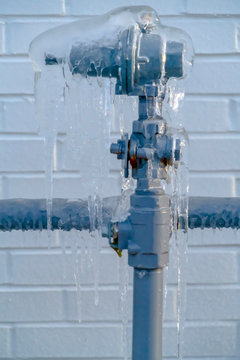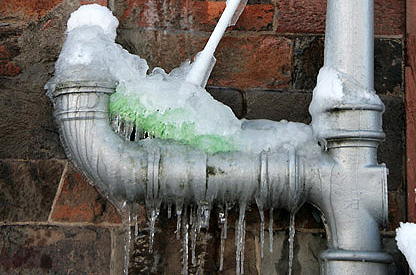Are you currently interested in know-how about How To Avoid Freezing Pipes?

Winter can wreak havoc on your plumbing, particularly by freezing pipelines. Below's exactly how to stop it from happening and what to do if it does.
Introduction
As temperature levels drop, the risk of frozen pipes boosts, possibly causing costly repairs and water damage. Comprehending just how to stop frozen pipes is important for property owners in cold climates.
Comprehending Icy Pipelines
What creates pipes to freeze?
Pipes ice up when exposed to temperatures listed below 32 ° F (0 ° C) for extended periods. As water inside the pipelines ices up, it broadens, taxing the pipe wall surfaces and potentially triggering them to burst.
Dangers and problems
Icy pipelines can cause water system disturbances, property damage, and expensive fixings. Ruptured pipes can flood homes and trigger substantial architectural damage.
Indicators of Frozen Water Lines
Recognizing frozen pipes early can stop them from bursting.
Just how to recognize frozen pipelines
Seek decreased water circulation from faucets, uncommon odors or noises from pipelines, and visible frost on exposed pipes.
Avoidance Tips
Shielding vulnerable pipelines
Cover pipelines in insulation sleeves or use heat tape to protect them from freezing temperatures. Focus on pipelines in unheated or external areas of the home.
Home heating strategies
Keep interior spaces adequately warmed, especially areas with plumbing. Open cabinet doors to allow cozy air to flow around pipelines under sinks.
Shielding Exterior Plumbing
Yard hoses and exterior faucets
Separate and drain pipes garden hose pipes before winter months. Install frost-proof faucets or cover outdoor faucets with protected caps.
What to Do If Your Pipelines Freeze
Immediate actions to take
If you presume frozen pipelines, keep faucets available to eliminate pressure as the ice melts. Utilize a hairdryer or towels soaked in warm water to thaw pipelines slowly.
Long-Term Solutions
Architectural modifications
Consider rerouting pipelines far from outside wall surfaces or unheated locations. Include extra insulation to attics, cellars, and crawl spaces.
Updating insulation
Purchase top quality insulation for pipes, attic rooms, and wall surfaces. Appropriate insulation assists maintain consistent temperatures and reduces the risk of frozen pipes.
Final thought
Avoiding icy pipelines needs positive measures and quick reactions. By understanding the causes, indications, and safety nets, home owners can protect their plumbing during cold weather.
Helpful Tips to Prevent Frozen Pipes this Winter
UNDERSTANDING THE BASICS: WHY PIPES FREEZE AND WHY IT’S A PROBLEM
Water freezing inside pipes is common during the winter months, but understanding why pipes freeze, and the potential problems it can cause is crucial in preventing such incidents. This section will delve into the basics of why pipes freeze and the associated problems that may arise.
THE SCIENCE BEHIND FROZEN PIPES
When water reaches freezing temperatures, it undergoes a physical transformation and solidifies into ice. This expansion of water as it freezes is the primary reason pipes can burst. As the water inside the pipe freezes, it expands, creating immense pressure on the walls. If the pressure becomes too great, the pipe can crack or rupture, leading to leaks and water damage.
FACTORS THAT CONTRIBUTE TO PIPE FREEZING
- Low Temperatures: Extremely cold weather, especially below freezing, increases the risk of pipes freezing.
- Uninsulated or Poorly Insulated Pipes: Pipes located in unheated areas, such as basements, crawl spaces, or attics, are more prone to freezing. Insufficient insulation or lack of insulation altogether exacerbates the problem.
- Exterior Wall Exposure: Pipes running along exterior walls are susceptible to freezing as they encounter colder temperatures outside.
- Lack of Heating or Temperature Regulation: Inadequate heating or inconsistent temperature control in your home can contribute to frozen pipes.
PROBLEMS CAUSED BY FROZEN PIPES
WHY CERTAIN PIPES ARE MORE PRONE TO FREEZING
- Pipe Bursting: As mentioned earlier, the expansion of water as it freezes can cause pipes to burst, resulting in significant water damage.
- Water Damage: When pipes burst, it can lead to flooding and water damage to your property, including walls, ceilings, flooring, and personal belongings.
- Structural Damage: Prolonged exposure to water from burst pipes can compromise the structural integrity of your home, leading to costly repairs.
- Mold and Mildew Growth: Excess moisture from water damage can create a favorable environment for mold and mildew growth, posing health risks to occupants.
- Disrupted Water Supply: Frozen pipes can also result in a complete or partial loss of water supply until the issue is resolved.
https://busybusy.com/blog/helpful-tips-to-prevent-frozen-pipes-this-winter/
- Location: Pipes located in unheated or poorly insulated areas, such as basements, crawl spaces, attics, or exterior walls, are at higher risk of freezing.
- Exterior Pipes: Outdoor pipes, such as those used for irrigation or exposed plumbing, are particularly vulnerable to freezing as they are directly exposed to the elements.
- Supply Lines: Pipes that carry water from the main water supply into your home, including the main water line, are critical to protect as freezing in these lines can affect your entire plumbing system.
- Underground Pipes: Pipes buried underground, such as those connected to sprinkler systems or outdoor faucets, can be susceptible to freezing if not properly insulated.

I hope you enjoyed our part on Helpful Tips to Prevent Frozen Pipes this Winter. Thank you so much for taking a few minutes to read through our content. Those who enjoyed our post plz be sure to share it. I recognize the value of your readership.
Details
Comments on “Important Advice to Prevent Frozen Plumbing in Cold Weather: Professional Guidance”